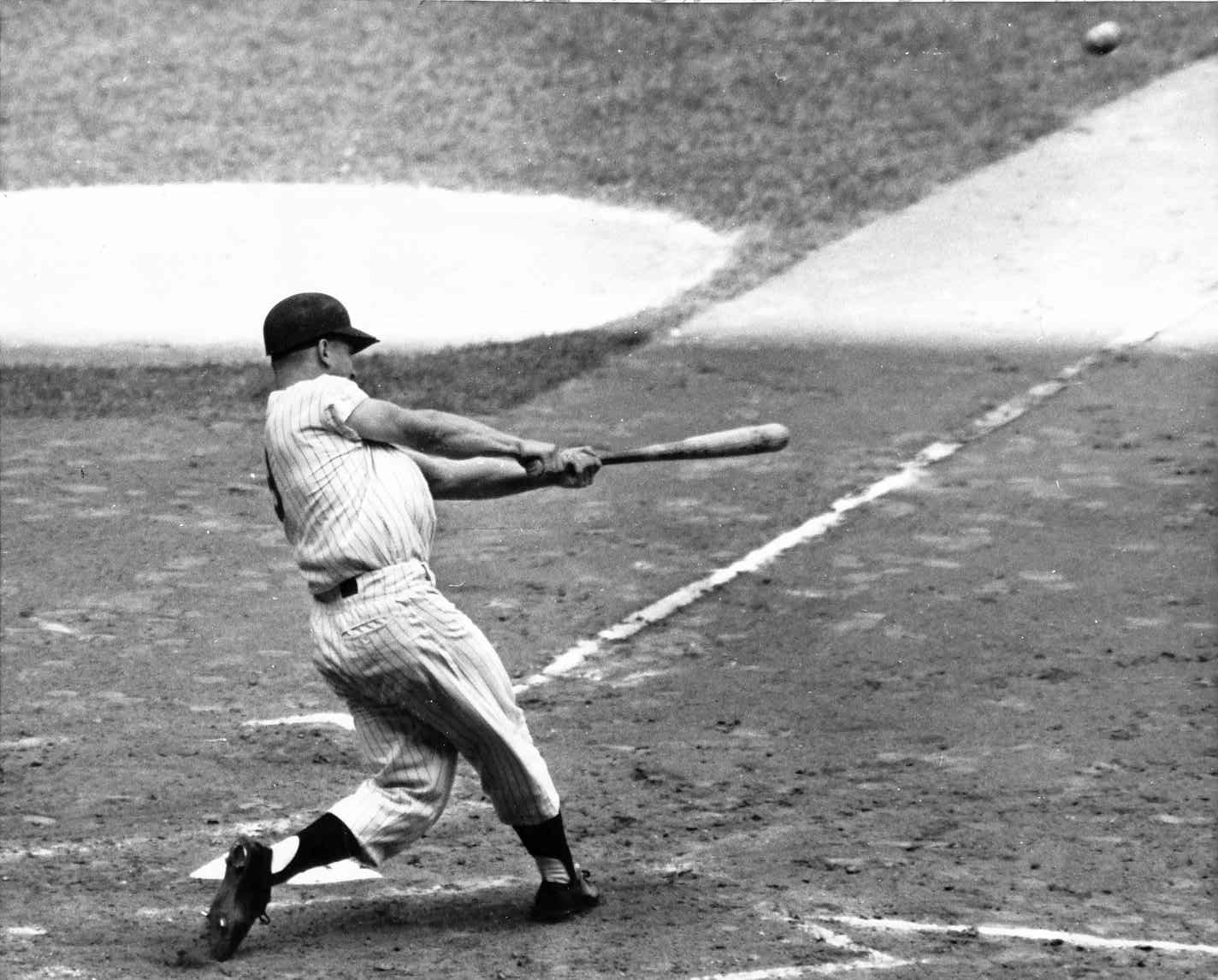 |
| With one swing of the bat, Maris made history . But is that achievement Hall-worthy? |
It's not hard to see why, for his case is pretty weak. The average right fielder in the Hall of Fame compiled 73.3 bWAR in his career, and Maris's total of 38.3 is about half that. As such, JAWS rates him as the 52nd best right fielder of all-time, better than only Ross Youngs among Hall of Famers at the position and worse than Jesse Barfield, Johnny Callison and Ken Singleton.What's more, Maris never hit .300, or even .290. He never had an on-base percentage above .375. He played in seven World Series, but his lackluster performance in the Fall Classic doesn't help his candidacy. Maris won two MVP awards, but so did Juan Gonzalez and Dale Murphy, both of whom have more compelling cases for Cooperstown.
That said, I will readily admit that at Maris's zenith in the early 1960s, when he won back-to-back MVPs and broke Babe Ruth's single-season home run record, he was a Hall of Fame caliber player. Worth seven wins in both 1960 and '61, Maris was an elite power hitter with good on-base skills and a tremendous arm. He even won a (much-deserved) Gold Glove in 1960 for defensive contributions on par with those of Al Kaline and Roberto Clemente. From 1960 to '62, nobody hit more home runs than Maris, who was the league's second most valuable player over that stretch per fWAR.
The problem is that he didn't do it long enough. His career, which lasted just 12 seasons, was abbreviated further by various injuries that kept him below 500 plate appearances in seven of those campaigns. As a result, his counting numbers fall far short of Cooperstown standards. His 127 OPS+ is very good, better than numerous Hall of Famers like Ron Santo, Kirby Puckett, Ernie Banks, and Johnny Bench, but not good enough to separate himself from the Bob Horner's, Dwight Evans's and Don Mattingly's of the world, much less compensate for a career that barely lasted 5,000 official at-bats.
The only viable case Maris has for Cooperstown is if you believe the Hall of Fame should honor the game's most famous and well-known players, regardless of track record. By that standard, Maris ranks very high. He held the single-season home run record for 37 years, and still holds the American League home run record (the three men who passed him--Mark McGwire, Sammy Sosa, and Barry Bonds--were all National Leaguers) to this day. His epic home run chase with Mickey Mantle during the summer of 1961 was one of the most memorable sports stories of all-time, shoving him into the national spotlight and making him a household name.
But many players have achieved a great deal of notoriety with one magical season. Mark Fidrych in 1976. Fernando Valenzuela five years later. Hideo Nomo in 1995. Eric Gagne in 2003. The list goes on. None of them are Hall-worthy because they couldn't sustain their excellence. Neither could Maris.
Maris followed up his record-breaking campaign with another strong performance in 1962, surpassing 30 home runs and 100 RBI for the third straight year and earning a fourth consecutive All-Star nod. Just 28 years old at season's end and with nearly 200 career home runs under his belt, Maris seemed to have a good shot at the Hall of Fame. His closest comp up to that point was Reggie Jackson, another legendary Yankee slugger who would reach similarly lofty heights 15 years later.
Unfortunately, injuries sabotaged the remainder of Maris's prime and accelerated his decline. He was limited to 90 games in '63 and just 46 in 1965, when he suffered a wrist injury that diminished his power. By 1966 the Yanks were in decline and so was Maris. In December he was traded to the St. Louis Cardinals for Charley Smith, who would go on to bat .224 with ten home runs in 181 games with New York over the next two years.
Meanwhile in St. Louis, Maris enjoyed a minor renaissance for the contending Cards. The veteran rebounded at the plate, and even with his power gone he still hit well enough to be a three-win player. St. Louis, led by Bob Gibson and league MVP Orlando Cepeda, won the 1967 World Series over Boston in large part because of Maris, who batted .385 with seven RBI in the seven-game Fall Classic. The '67 Series turned out to be Maris's last hurrah, as he fell off the following year and retired after a poor World Series, which the Cardinals lost to the Detroit Tigers.
Maris had a Hall of Fame peak, but not a Hall of Fame career. The same can be said about several players in Cooperstown, namely Sandy Koufax, Jim Rice, and Roy Campanella, but their peaks were longer and higher. Three great seasons just isn't enough.
Agreed that Maris falls a bit short of Hall-worthy. Though it's great that his best WS performance was with the Cardinals in '67 vs. Red Sox (Brock and Maris accounted for 19 of Cards 25 runs in 7 game series).
ReplyDelete